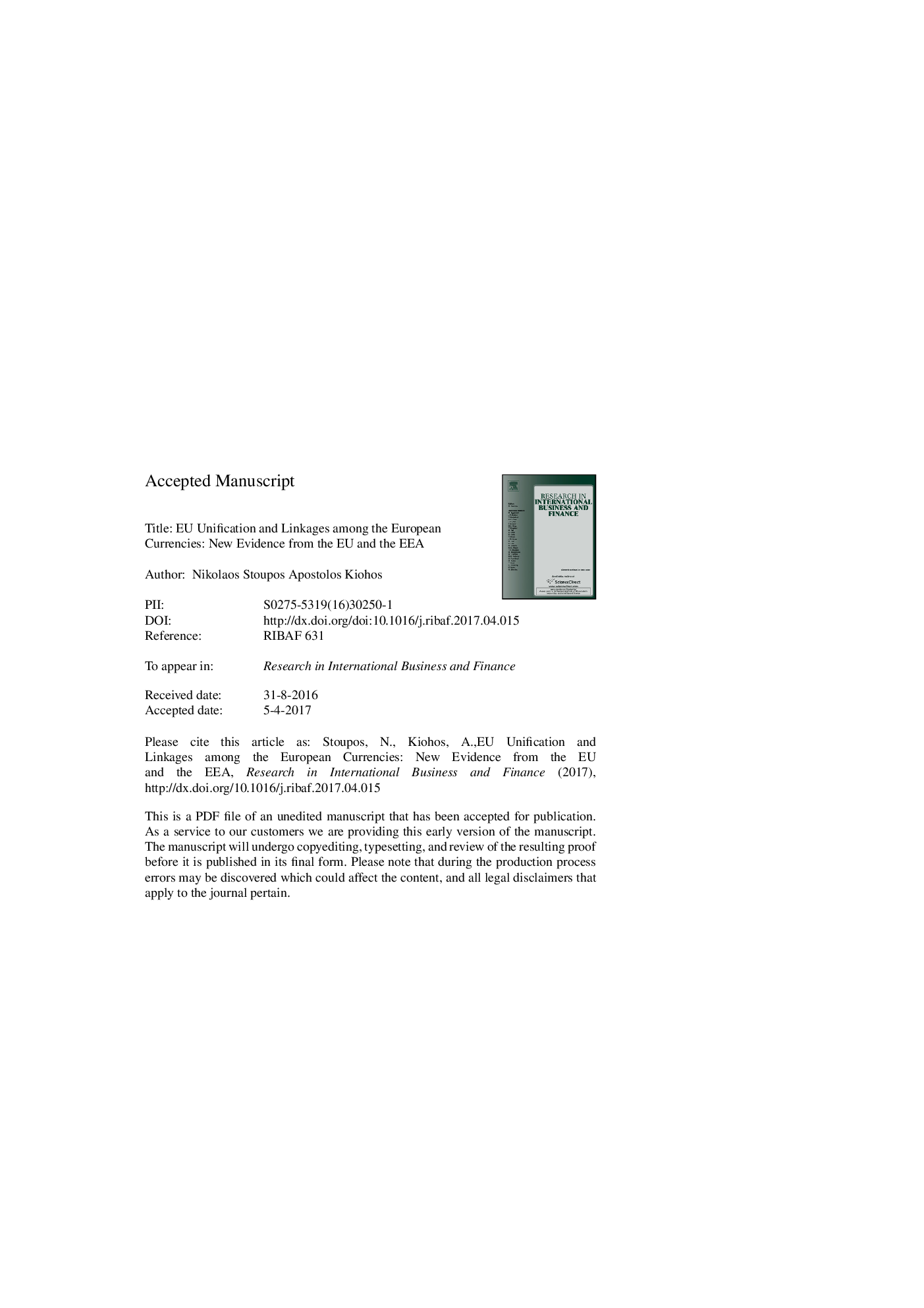| Article ID | Journal | Published Year | Pages | File Type |
|---|---|---|---|---|
| 5107353 | Research in International Business and Finance | 2017 | 24 Pages |
Abstract
The global financial crisis of 2008 and the debt crisis of 2010 in the Eurozone create multiple anomalies in the international financial system. The current article examines if the Eurozone is able to expand further. Exchange rates constitute an important parameter in order to examine the EU integration. We used a combination of Error Correction Model with Exponential GARCH, ECM-EGARCH. The empirical evidence highly supports that, from a financial viewpoint, the UK should not join the euro. Switzerland shows historically an exchange rate independence from euro but there are recent indications which support the opposite direction. Additionally, the results suggest that Sweden should join the Eurozone as there is a strong historical linkage between the euro and the Swedish koruna. Finally, the devaluation of the euro against the dollar shows a greater impact, than the overvaluation against the dollar, on the Sterling pound, the Swiss franc and the Swedish koruna.
Related Topics
Social Sciences and Humanities
Business, Management and Accounting
Business and International Management
Authors
Nikolaos Stoupos, Apostolos Kiohos,
